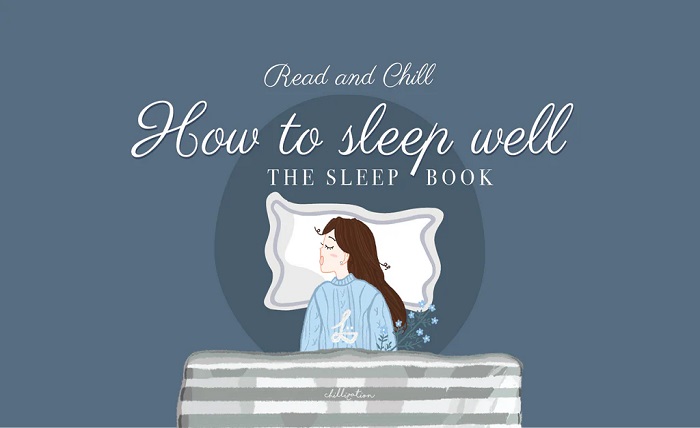In our fast-paced world, sleep often takes a backseat to busy schedules and endless to-do lists. Yet, mastering the art of a good night’s sleep is crucial for maintaining overall health and well-being. This blog post will guide you through understanding the importance of sleep, the science that supports it, the factors affecting its quality, and practical improvement tips. Whether you’re struggling with insomnia or just looking to enhance your nightly rest, you’re in the right place.
The Importance of Sleep for Health and Well-being
Getting a solid night’s sleep isn’t just about feeling rested; it’s vital for your physical and mental health. Sleep affects everything from mood and concentration to weight and heart health. Without adequate rest, you’re more susceptible to illnesses and less likely to handle stress effectively. Research continually shows a strong link between sleep and overall well-being.
When you sleep well, your body repairs itself, your brain processes memories, and you wake up equipped to tackle the day ahead. If you’re consistently sleep-deprived, you might experience irritability, cognitive decline, and a weakened immune system. The benefits of good sleep are far-reaching, making it crucial to prioritize.
Sleep can even impact your long-term health. Quality rest reduces the risk of chronic conditions such as obesity, cardiovascular diseases, and type 2 diabetes. It’s a powerful preventive measure that can keep your body functioning optimally.
Understanding the Science of Sleep
To master the art of sleep, it helps to understand the science behind it. Our sleep cycles are divided into various stages, each playing a unique role. These include light sleep, deep sleep, and REM (Rapid Eye Movement) sleep. Each stage has its function in restoring the mind and body.
During the initial stages of light sleep, your body begins to relax. Your brain activity starts to slow, and you prepare for deeper sleep. In the next phase, known as deep sleep, your body focuses on physical recovery. This is when tissue repair occurs, and growth hormones are released, crucial for children and adults alike.
The final stage, REM sleep, is where dreaming happens. It’s vital for cognitive functions, such as memory and learning. REM sleep enhances creativity and problem-solving skills. Understanding these stages highlights the importance of getting enough rest to complete these cycles.
Factors Affecting Sleep Quality
A myriad of factors can influence how well you sleep. Your lifestyle choices, such as diet and exercise, have a significant impact. For instance, consuming caffeine or heavy meals close to bedtime can disrupt sleep. Regular physical activity, on the other hand, promotes better sleep patterns.
Your sleep environment also plays a crucial role. A cluttered or noisy bedroom can hinder your ability to fall and stay asleep. It’s essential to create a serene space conducive to relaxation. Health conditions like sleep apnea or anxiety can also impede your rest, requiring further medical attention to address.
Even stress levels and mental health status can affect how soundly you sleep. Mind racing with thoughts before bed is a common culprit of insomnia. Hence, managing stress through mindfulness techniques or therapy can significantly enhance sleep quality.
Creating a Sleep-Friendly Environment
Transforming your bedroom into a sleep sanctuary is a vital step toward better rest. Lighting is key; dim lights signal your brain that it’s time to wind down. Consider using blackout curtains or an eye mask to block out unwanted light.
Temperature matters too. A cool room, generally between 60-67 degrees Fahrenheit, is ideal for sleep. This climate mimics your body’s natural drop in temperature as it prepares for rest. Keeping your space at this optimal range can prevent tossing and turning.
Noise can be another sleep disruptor. Consider using earplugs or a white noise machine to drown out disturbances. Keeping your bedroom quiet and serene will help you drift off more easily and stay asleep through the night.
Establishing Healthy Sleep Habits
Developing a consistent sleep routine can work wonders. Aim to go to bed and wake up at the same time every day, even on weekends. This regularity reinforces your body’s internal clock, making it easier to fall asleep naturally.
Incorporate relaxing pre-sleep rituals, like reading a book or taking a warm bath. These activities signal your body that it’s time to unwind and prepare for sleep. Avoid screens at least an hour before bed, as the blue light emitted from devices can disrupt melatonin production, the hormone responsible for sleep.
Pay attention to your mattress and pillows. Investing in quality bedding, like a queen-size memory foam mattress, can provide the support and comfort necessary for restful sleep. The right mattress alleviates pressure points and aligns your spine, reducing pain and discomfort.
The Role of Technology in Sleep
While too much screen time can hinder sleep, technology can also be beneficial when used wisely. Sleep apps can monitor your rest patterns and offer insights into your sleep quality. Some even include meditation guides to help you wind down.
Smart devices, such as adjustable beds or smart lighting, can enhance your sleep environment. These technologies allow you to customize your sleeping position and lighting to suit your personal needs, promoting better rest.
However, moderation is key. Ensure technology enhances rather than detracts from your sleep experience. Set boundaries for device usage and keep tech out of the bedroom when possible.
Debunking Common Sleep Myths
There’s no shortage of myths surrounding sleep, and it’s important to separate fact from fiction. One common misconception is that everyone needs exactly eight hours of sleep. While this is a general guideline, individual needs vary. Some thrive on seven hours, while others require nine.
Another myth is that napping during the day can ruin nighttime sleep. Short, restorative naps can boost energy and mood without interfering with your nightly rest. The key is to keep naps brief and early in the day.
Finally, many believe alcohol helps them sleep. While it may make you feel sleepy initially, alcohol disrupts sleep cycles and results in poorer quality rest. Being informed about these myths ensures you make better choices for your sleep health.
Conclusion
Consistent, high-quality sleep is essential for enhancing your life and improving mood, performance, and overall health. Implementing effective strategies can lead to restful nights and refreshed mornings. If persistent sleep issues arise, consult a healthcare professional for personalized advice. Prioritize sleep in your wellness routine for a happier, healthier you, focusing on both quality and quantity. Sweet dreams!



